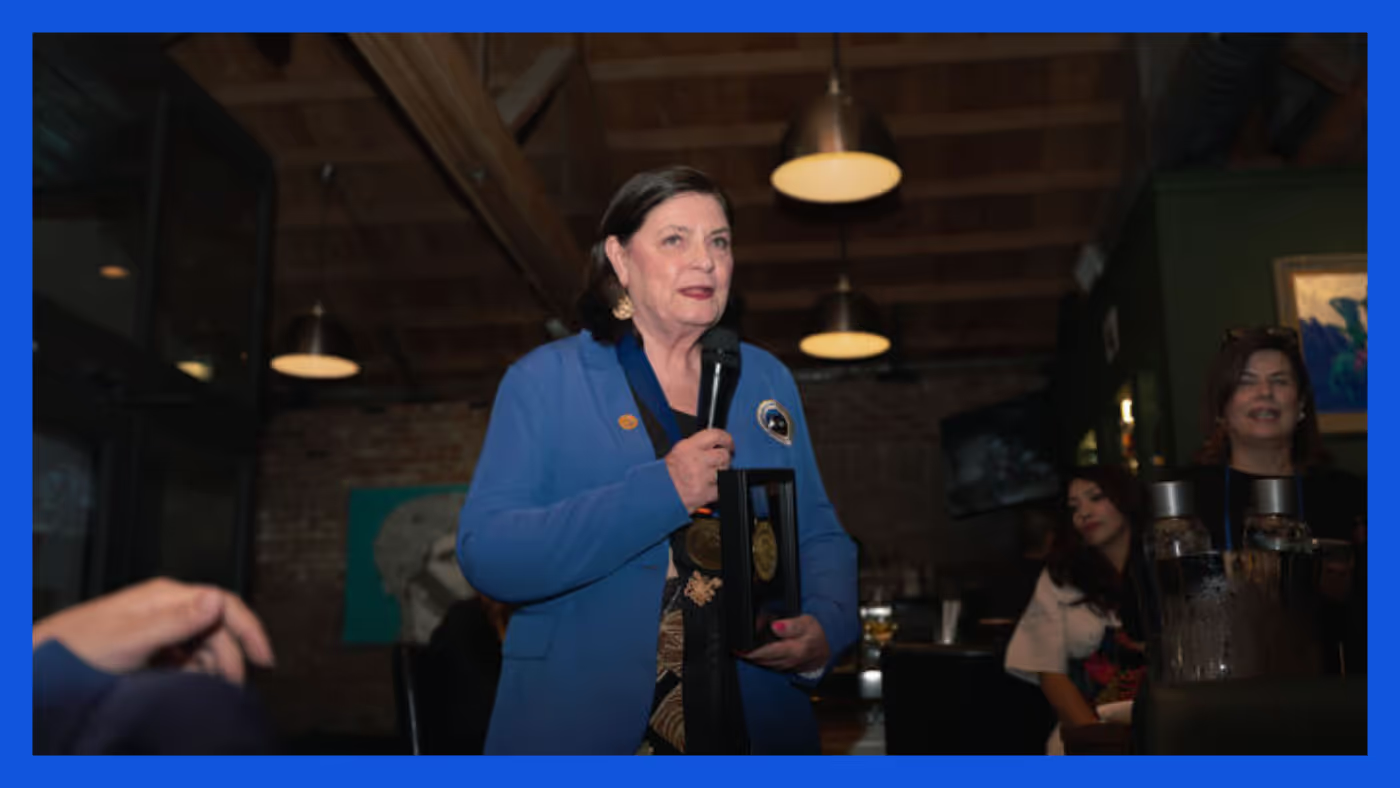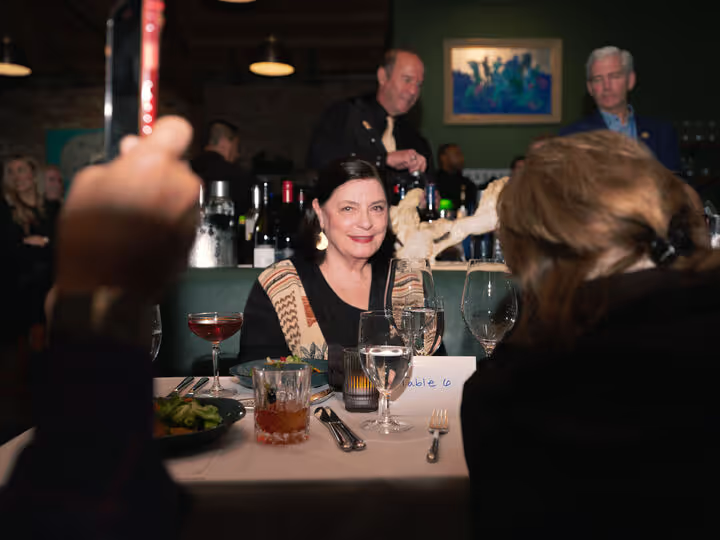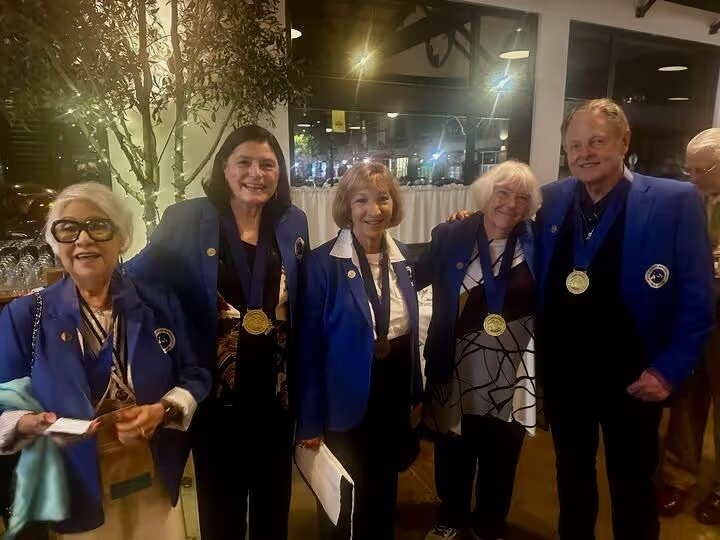Honoring a Visionary: Kathy Escamilla's Path to the Multilingual Education Hall of Fame
Hear more from Dr. Kathy Escamilla's journey from Bilingual Classroom Teacher to Inspirational Scholar

Hear more from Dr. Kathy Escamilla's journey from Bilingual Classroom Teacher to Inspirational Scholar

Dr. Kathy Escamilla, Professor Emerita at the University of Colorado Boulder, has been officially inducted into the inaugural class of the Multilingual Education Hall of Fame , established in 2025 by Summit K12 to honor the pioneers and leaders in multilingual education. This honor recognizes pioneers whose research, advocacy, and leadership have redefined how multilingual learners are taught, assessed, and supported. Dr. Escamilla’s decades-long career has been rooted in one unwavering belief: that bilingualism and biliteracy are not obstacles but assets, vital to educational equity in the United States.
Escamilla’s journey began in bilingual classrooms in Colorado and California, igniting her passion for supporting Spanish-speaking language minority students Over the span of more than 25 years, she transitioned from practitioner to trailblazing scholar, shaping the field’s foundation and trajectory.
At the core of Dr. Escamilla’s work is a deep commitment to bilingualism and biliteracy, especially during early literacy development. Her Literacy Squared initiative, launched in 2004, emphasized the importance of developing reading and writing in both English and Spanish simultaneously—underscoring the benefits and feasibility of dual-language instruction.
Her research challenges entrenched practices that simply transfer English literacy instruction to Spanish without considering linguistic and cultural differences. She advocates for methods that honor the unique trajectory of biliteracy among multilingual learners.
Escamilla's work also critically examines the impact of high-stakes standardized testing on emerging bilingual students. She has been a vocal advocate for equitable assessment practices that reflect multilingual students' contexts and strengths, rather than penalizing them through monolingual frameworks..
Dr. Escamilla’s influence extends beyond her research; she has held key leadership roles including serving two terms as President of the National Association for Bilingual Education, acting as co-editor of the Bilingual Research Journal, and chairing the Bilingual Special Interest Group for the American Educational Research Association (AERA).
Her scholarly contributions go beyond theory. Dr. Escamilla's research has reshaped how educators, policymakers, and assessments view bilingual learners—not as deficiencies, but as holders of linguistic and cultural assets. Her approach has inspired countless teachers and researchers to place equity and linguistic diversity at the heart of education.
Being named among the inaugural class of the Multilingual Education Hall of Fame is not just an individual accolade—it’s a testament to Dr. Escamilla’s lifelong effort to reshape educational systems to be more inclusive, equitable, and linguistically affirming.


Escamilla, K. (2009, April). The Misunderestimation of Manuel: Issues in Reductionist Paradigms and Parallel Monolingual Frameworks in the Quest to Improve Policy and Practice for Bilingual Learners. Paper presented at the American Educational Research Association Annual Meeting, San Diego, CA.
Escamilla, K., & Hopewell, S. (2007, April). The Role of Code-Switching in the Written Expression of Early Elementary Simultaneous Bilinguals. Paper presented at the American Educational Research Association Annual Meeting, Chicago, IL.
Escamilla, K., Hopewell, S., & Ruiz, O. (2007, April). Transitions to Biliteracy: Beyond Spanish and English. Paper presented at the American Educational Research Association Annual Meeting, Chicago, IL.
Geisler, D., Escamilla, K., & Ruiz, O. (2007, April). Transitions to Biliteracy: Focus on Writing of Spanish/English Emerging Bilinguals. Paper presented at the American Educational Research Association Annual Meeting, Chicago, IL.
Sparrow, W., Butvilofsky, S., Escamilla, K., Hopewell, S. & Tolento, T. (2014). Examining the longitudinal biliterate trajectory of emerging bilingual learners in a paired literacy instructional model. Bilingual Research Journal, 37(1), 24-42.
Hopewell, S. & Escamilla, K. (2014). Biliteracy development in immersion contexts. Journal of Immersion and Content Based Language Education, 2(2), 181-195.
Hopewell, S. & Escamilla, K. (2013). Struggling reader or emerging bilingual student? Reevaluating the criteria for labeling emerging bilingual students as low achieving. Journal of Literacy Research. DOI: 10:11771/1086296X13504869.
Escamilla, K., Chavez, L., & Vigil, P. (2005). Rethinking the "gap": High-stakes testing and Spanish-speaking students in Colorado. Journal of Teacher Education, 56(2), 1-13.
Escamilla, K., Shannon, S., Carlos, S., & García, J. (2003). Breaking the code: Colorado's defeat of the anti-bilingual education initiative (Amendment 31). Bilingual Research Journal, 27(3), 357-382.
Nathenson-Mejia, S., & Escamilla, K. (2003). Connecting with Latino children: Bridging gaps with children's literature. Bilingual Research Journal, 27(1), 101-116.
Escamilla, K., Chavez, L., Mahon, E., & Riley-Bernal, H. (2003). High-stakes testing, Latinos and limited English proficient students: Lessons from Colorado. Bilingual Research Journal, 27(1), 25-49.
Escamilla, K., & Nathenson-Mejia, S. (2003). Preparing culturally responsive teachers: Using Latino children's literature in teacher education. Equity and Excellence in Education, 36(3), 238-248.
Escamilla, K., Loera, M., Rodriguez, Y., & Ruiz, O. (1998). An examination of sustaining effects in Descubriendo La Llectura programs. Literacy Teaching and Learning: An International Journal of Early Reading and Writing, 3(2), 59-81.
Escamilla, K. (2015). Schooling begins before adolescence: The case of Manuel and limited opportunities to learn. In D. Molle, E. Sato, T. Boals, & C. Hedgspeth (Eds.). Multilingual Learners and Academic Literacies: Social Contexts of Literacy Development in Adolescents. New York: Routledge.
Escamilla, K. (2006). Monolingual assessment and emerging bilinguals: A case study in the US. In O. Garcia, T. Skutnabb-Kangas, & M. Torres-Guzman (Eds.), Imagining Multilingual Schools (pp. 184-199). Clevedon, England: Multilingual Matters Ltd. Multilingual Matters website
Escamilla, K., & Coady, M. (2001). Assessing the writing of Spanish speaking students: Issues and suggestions. In J. Tinajero & S. Hurley (Eds.), Handbook for literacy assessment for bilingual learners (pp. 43-63). Boston: Allyn & Bacon.
Escamilla, K. (2000). Bilingual means two: Assessment issues, early literacy and two language children. In Research in literacy for limited English proficient students (pp. 100-128). Washington, DC: National Clearinghouse for Bilingual Education.
Escamilla, K. (1999). Teaching literacy in Spanish. In R. De Veillar & J. Tinajero (Eds.), The power of two languages 2000. New York: Macmillan/McGraw-Hill, 126-141.
For more on The Multilingual Education Hall of Fame, check out Honoring Dr. Margarita Espino Calderon's story here